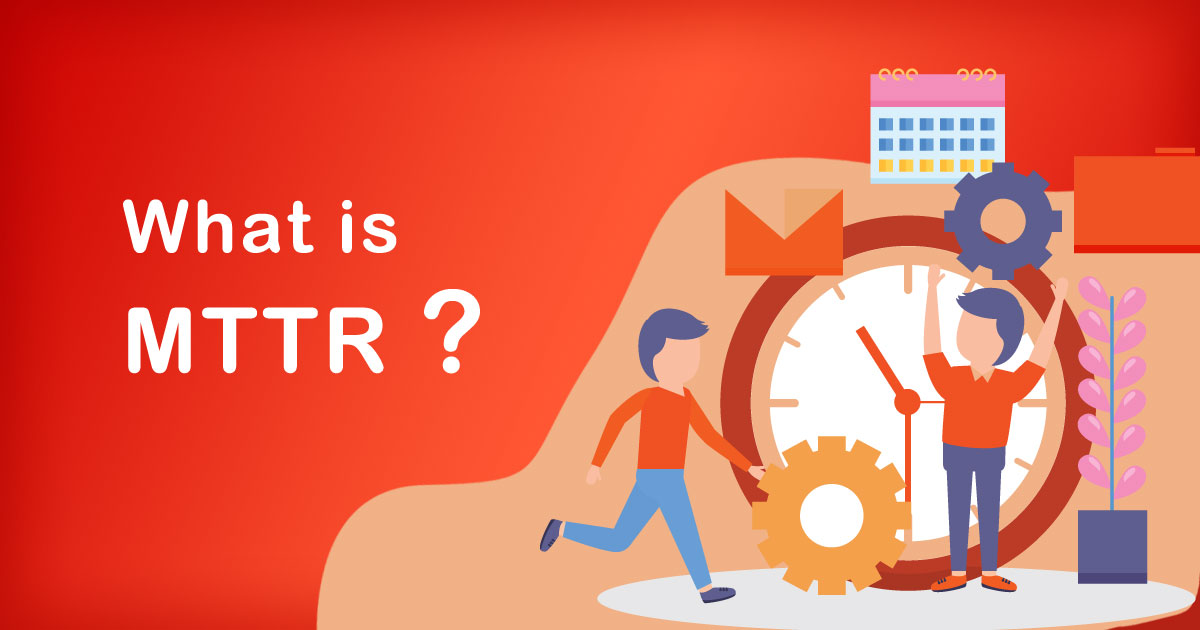Introduction
In today’s fast-paced and technology-driven world, businesses heavily rely on various systems and applications to operate efficiently. However, with the growing complexity of these systems, technical glitches and failures are inevitable. When these issues arise, organizations need to focus on reducing the Mean Time to Repair (MTTR) to ensure minimal downtime and sustained productivity. In this blog, we will explore the concept of what is MTTR, its significance, and its implications for businesses in the Indian context.
Understanding MTTR
MTTR stands for Mean Time to Repair, which is a crucial metric used to measure the average time it takes to fix a system or device after a failure occurs. Essentially, it reflects the efficiency and effectiveness of the repair process. The MTTR calculation includes the time from the moment the failure is identified until the system is fully operational again.
The Formula for Calculating MTTR
MTTR = Total Downtime / Number of Failures
Importance of MTTR
1. Reduced Downtime and Improved Productivity:
MTTR directly impacts the downtime experienced by an organization. A shorter MTTR means a quicker recovery from failures, leading to reduced downtime and enhanced productivity. This becomes especially crucial for businesses that rely heavily on their IT infrastructure.
2. Customer Satisfaction:
In today’s competitive market, customer satisfaction is paramount. When systems fail, it can result in customer-facing services being disrupted. A fast MTTR ensures that the services are restored promptly, minimizing the impact on customers and preserving their trust in the company.
3. Cost Savings:
Extended downtime can lead to financial losses for businesses due to idle employees, lost sales opportunities, and potential penalties in service level agreements. A swift MTTR can help mitigate these financial repercussions.
4. Preventing Escalation:
Timely resolution of issues can prevent minor problems from escalating into major ones. If not addressed promptly, a small glitch might trigger a chain reaction of failures, resulting in more extensive damage to the system.
5. Maintaining Reputation:
In today’s digital age, news travels fast, especially when there is a major system failure. Rapidly resolving issues safeguards the company’s reputation and prevents negative publicity.
Factors Affecting MTTR in the Indian Context
1) Skill and Expertise:
Availability of skilled professionals plays a vital role in reducing MTTR. In India, the technology sector is booming, and with the right talent pool, organizations can ensure faster problem-solving.
2) Infrastructure:
Access to robust and modern infrastructure can significantly impact MTTR. Companies that invest in high-quality systems and redundancy measures are better equipped to handle failures swiftly.
3) Organizational Processes:
Efficient incident management processes and workflows can streamline the MTTR. In India, many organizations are adopting ITIL (Information Technology Infrastructure Library) practices to optimize their incident management.
4) Remote Support and Automation:
Leveraging remote support and automation tools can accelerate the troubleshooting process, particularly for geographically dispersed organizations.
Challenges to Improving MTTR
1) Resource Availability:
Despite India’s abundant talent pool, there might be a shortage of skilled professionals in niche technologies, which can slow down the MTTR.
2) Response Time:
India’s vast geography and infrastructure limitations can lead to delays in on-site support, impacting the overall MTTR.
3) Data Security and Compliance:
In certain industries, strict data security and compliance regulations can create additional challenges while addressing failures.
Conclusion
MTTR is an indispensable metric for businesses operating in India’s dynamic and competitive landscape. A swift MTTR ensures reduced downtime, increased customer satisfaction, and substantial cost savings. With the right talent, efficient processes, and modern infrastructure, Indian companies can effectively manage failures and maintain their reputation as reliable service providers. Striving for continuous improvement in MTTR is a step toward building resilient and successful organizations in the digital era.








